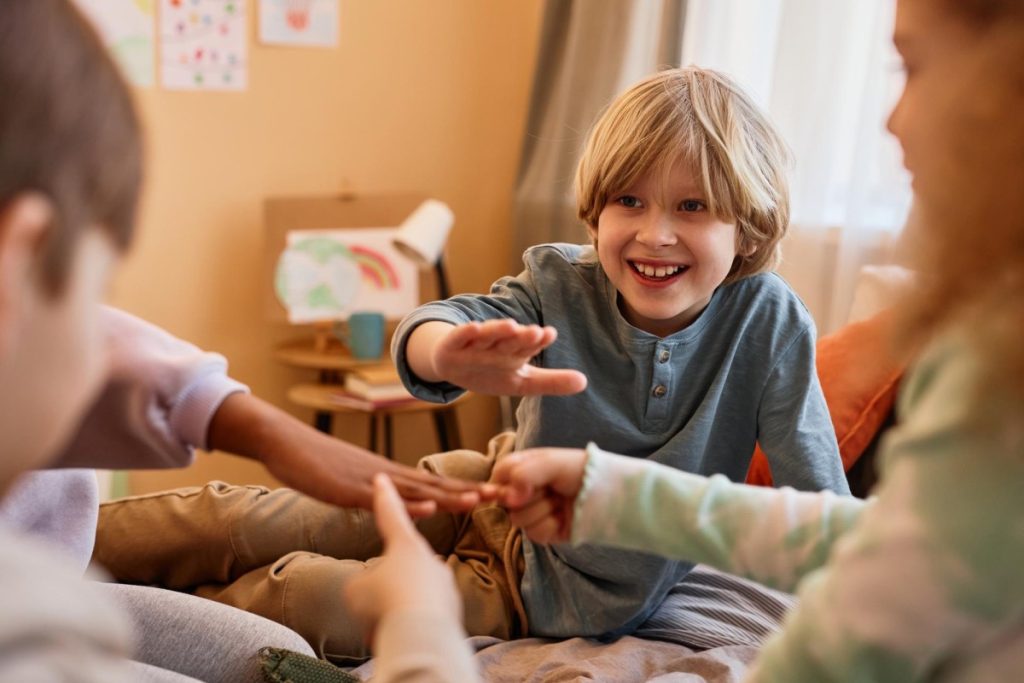At Little Planet Preschool, we believe that early learning isn’t just about letters and numbers—it’s about helping children become confident, compassionate members of a community. That’s why building strong social skills is one of the core pillars of our preschool curriculum.
In this post, we’ll explore:
- Why social development is critical in the early years
- How Little Planet fosters these skills in everyday routines
- Specific activities and strategies you can use at home
Whether you’re a parent, caregiver, or educator, these insights will help you support the whole-child development that preschoolers need to thrive—now and into the future.
Why Social Skills Matter in Preschool
Between ages 3 and 5, children experience a rapid expansion in language, self-awareness, and emotional understanding. During this time, they begin to:
- Initiate and sustain peer interactions
- Express feelings with words rather than actions
- Learn to share, take turns, and cooperate
- Understand the concept of empathy
- Navigate early conflict and resolution
These abilities don’t just help with classroom behavior—they form the foundation for academic readiness, emotional well-being, and lifelong relationship success.
At Little Planet Preschool, we view social-emotional learning as just as important as cognitive development. That’s why our teachers weave social skill-building into everyday experiences, from morning circle to outdoor play.
How We Build Social Skills at Little Planet Preschool
Here are just a few of the ways our program is designed to support healthy social development:
1. Intentional Modeling
Our teachers model respectful communication, empathy, and problem-solving in real-time. Children absorb these behaviors through observation and guided participation.
“Would you like a turn with the blocks after Maya is done?”
“It looks like you’re upset—can you show me what happened using your words?”
2. Cooperative Play
From sensory bins to block towers, many of our classroom activities are designed for shared space and shared goals. Children learn to:
- Ask for what they need
- Listen to others
- Practice negotiation and patience
3. Emotional Vocabulary
We teach children how to name their feelings—happy, frustrated, proud, disappointed—and how to respond to others’ emotions with care.
Tools like emotion cards, mood check-ins, and feelings charts help children build this vital vocabulary.
4. Routine-Based Learning
Preschoolers thrive on routine. Our daily schedule offers repeated social interactions in:
- Morning meetings
- Storytime discussions
- Snack-time conversations
- Group clean-up
Consistency makes it easier for children to learn, rehearse, and master social skills.
5. Conflict Resolution Tools
We use developmentally appropriate conflict resolution steps, including:
- “I feel…” statements
- Peer mediation with teacher support
- Calm-down corners with sensory tools
Rather than punishing mistakes, we see them as opportunities for learning.
Activities That Nurture Preschool Social Skills
Want to support social development at home? Try these simple, research-backed activities:
“Feelings Charades”
Act out emotions like happy, angry, surprised, or shy—and have your child guess. This builds empathy and emotional recognition.
Turn-Taking Games
Board games, ball games, and even “Simon Says” can help preschoolers learn to wait, listen, and follow group rules.
Read Alouds with Discussion
Books like The Rainbow Fish, Hands Are Not for Hitting, or Have You Filled a Bucket Today? prompt rich conversations about kindness, sharing, and feelings.
Dramatic Play
Pretend kitchens, doctor’s offices, or animal rescue stations allow children to role-play cooperation, caretaking, and negotiation.
Helping with Household Routines
Chores like setting the table or folding towels—done together—encourage collaboration and reinforce helpfulness as a social behavior.
Ready to Grow with Us?
At Little Planet Preschool, we’re more than a childcare center—we’re a community where children learn how to care for themselves, each other, and the world around them.
We welcome you to visit our classrooms, meet our teachers, and see how we support social, emotional, cognitive, and creative growth every day.
Schedule a tour today Or call us to speak with our enrollment team.

